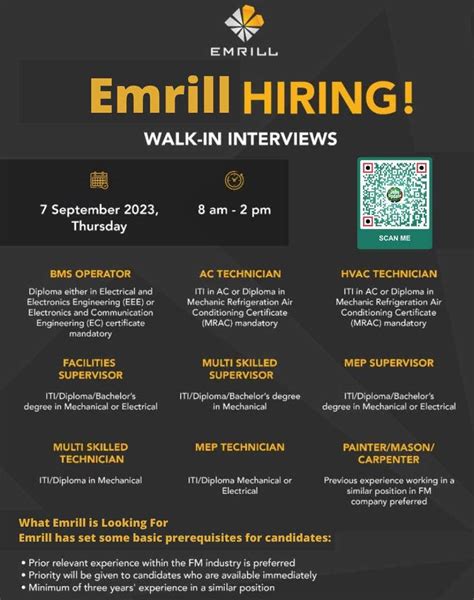Are you a college graduate with a bachelor’s degree? If so, you’re not alone. According to the U.S. Bureau of Labor Statistics, more than two-thirds of all jobs in the United States require at least a bachelor’s degree. That’s why it’s more important than ever to get an education that will prepare you for the workforce.

A bachelor’s degree can open doors to a wide range of careers. Here are just a few of the most popular jobs that require a bachelor’s degree:
- Accountants
- Actuaries
- Architects
- Business Analysts
- Computer and Information Scientists
- Data Scientists
- Engineers
- Financial Analysts
- Health Care Managers
- Human Resources Managers
- Lawyers
- Market Research Analysts
- Nurses
- Physicians
- Public Relations Specialists
- Software Developers
- Teachers
- Web Developers
As you can see, the list of jobs that require a bachelor’s degree is long and varied. No matter what your interests are, you’re sure to find a career that’s a good fit for you.
**The Benefits of a Bachelor’s Degree**
There are many benefits to getting a bachelor’s degree. Here are just a few:
- Higher earning potential. On average, people with a bachelor’s degree earn more money than those with only a high school diploma. According to the Bureau of Labor Statistics, the median annual salary for workers with a bachelor’s degree is $65,660, compared to $48,480 for workers with only a high school diploma.
- More job opportunities. A bachelor’s degree can open doors to a wider range of jobs. This is especially true in fields that require specialized knowledge or skills.
- Greater job security. Workers with a bachelor’s degree are less likely to be unemployed than those with only a high school diploma. According to the Bureau of Labor Statistics, the unemployment rate for workers with a bachelor’s degree is 3.5%, compared to 5.6% for workers with only a high school diploma.
- Increased earning potential. A bachelor’s degree can lead to higher earning potential throughout your career. According to the College Board, workers with a bachelor’s degree earn an average of $1 million more over their lifetimes than workers with only a high school diploma.
**How to Choose a Bachelor’s Degree Program**
Choosing a bachelor’s degree program is a big decision. Here are a few things to consider when making your choice:
- Your interests. What are you passionate about? What do you enjoy learning about? Choose a degree program that will allow you to pursue your interests.
- Your career goals. What do you want to do for a career? What kind of job do you want to have? Choose a degree program that will prepare you for the career you want.
- The cost of education. How much will it cost to get a bachelor’s degree? Make sure you can afford the cost of education before you enroll in a program.
- The location of the school. Where do you want to go to school? Choose a school that is located in a place that you want to live.
**The Importance of Getting a Good Education**
Getting a good education is essential for success in today’s job market. A bachelor’s degree can open doors to a wide range of careers, and it can lead to higher earning potential, more job opportunities, and greater job security.
If you’re considering getting a bachelor’s degree, I encourage you to do your research and find a program that is a good fit for you. A bachelor’s degree is a great investment in your future.
**Table 1: Top 10 Most Popular Bachelor’s Degree Programs**
| Rank | Degree Program | Number of Graduates |
|---|---|---|
| 1 | Business Administration | 364,540 |
| 2 | Health Sciences | 315,180 |
| 3 | Education | 276,360 |
| 4 | Psychology | 230,400 |
| 5 | Computer Science | 207,350 |
| 6 | Engineering | 197,820 |
| 7 | Nursing | 188,430 |
| 8 | Social Sciences | 164,510 |
| 9 | Biological Sciences | 153,660 |
| 10 | Criminal Justice | 149,450 |
**Table 2: Median Annual Salary for Workers with a Bachelor’s Degree**
| Occupation | Median Annual Salary |
|---|---|
| Accountants | $73,500 |
| Actuaries | $108,350 |
| Architects | $80,950 |
| Business Analysts | $91,250 |
| Computer and Information Scientists | $126,830 |
| Data Scientists | $126,830 |
| Engineers | $100,440 |
| Financial Analysts | $85,660 |
| Health Care Managers | $104,280 |
| Human Resources Managers | $113,300 |
| Lawyers | $126,930 |
| Market Research Analysts | $63,920 |
| Nurses | $75,330 |
| Physicians | $208,000 |
| Public Relations Specialists | $61,120 |
| Software Developers | $110,140 |
| Teachers | $60,940 |
| Web Developers | $77,200 |
**Table 3: Unemployment Rate for Workers with a Bachelor’s Degree**
| Level of Education | Unemployment Rate |
|---|---|
| High School Diploma Only | 5.6% |
| Bachelor’s Degree | 3.5% |
| Master’s Degree | 2.9% |
| Doctorate Degree | 2.2% |
**Table 4: Lifetime Earnings of Workers with a Bachelor’s Degree**
| Level of Education | Lifetime Earnings |
|---|---|
| High School Diploma Only | $1.6 million |
| Bachelor’s Degree | $2.6 million |
| Master’s Degree | $3.2 million |
| Doctorate Degree | $4.2 million |
